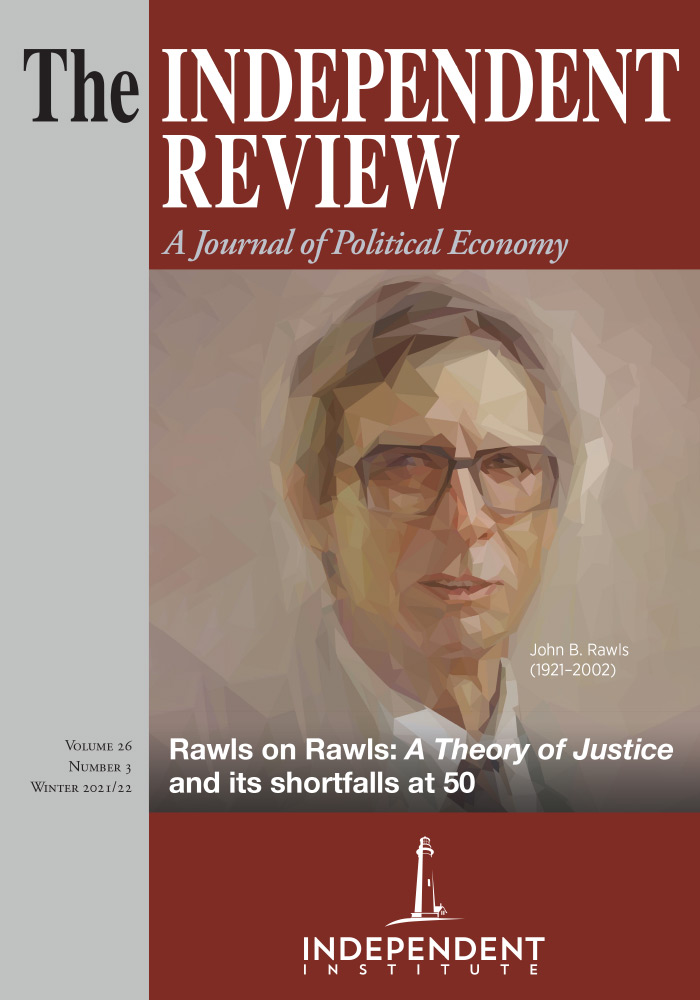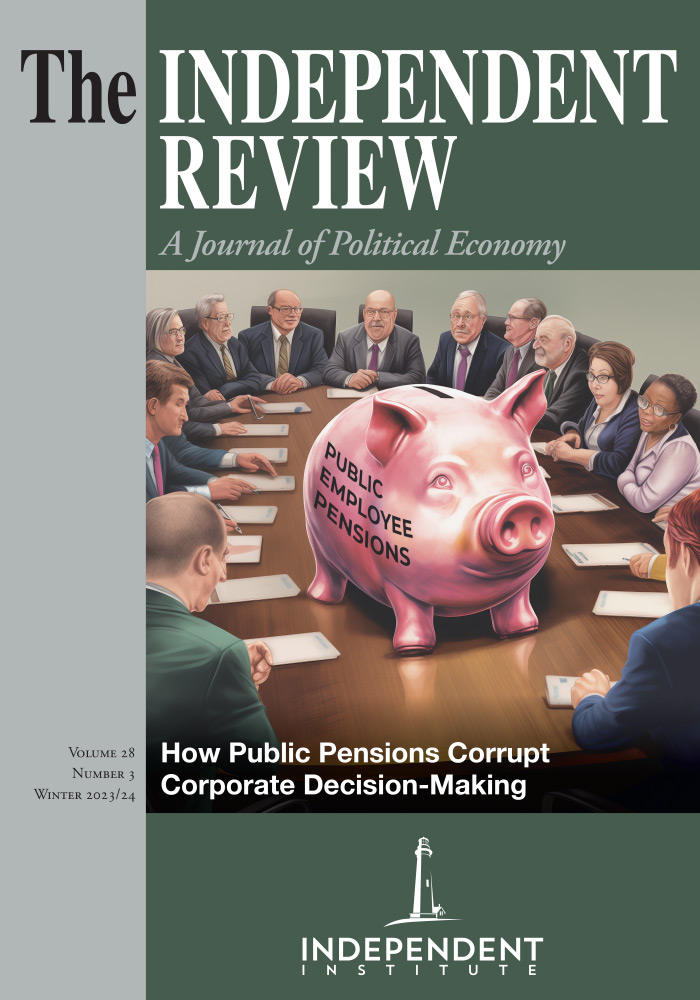In this issue of The Independent Review, Alexander Rawls—the son of philosopher John Rawls—argues that the theory of “justice as fairness” does not adequately handle the question of what people actually deserve. The best a society can hope for is a set of rules that create conventions of property rights and predictable order. A theory of justice that ignores the costs of adjudicating disputes is simply an invitation to rent-seeking. Alexander Rawls argues for a notion of justice in which claims of need and claims of desert get adjudicated together, allowing a more workable theory of justice to emerge. The Independent Review asked three prominent young philosophers to assess Alexander Rawls’ insights into his father’s work.
| Other Independent Review articles by Michael C. Munger | ||
| Spring 2024 | Following Their Leaders: Political Preferences and Public Policy | |
| Spring 2024 | The Origins and Evolution of Consumer Capitalism; Crack-Up Capitalism | |
| Winter 2023/24 | The Classical Liberal Diaspora | |
| [View All (79)] | ||










